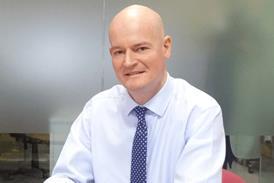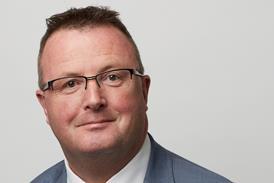- Central oversight of trusts’ wholly owned subsidiary companies to be “strengthened”
- Trusts face having to report proposals to create such companies to NHS Improvement
- Closer scrutiny will ensure companies are not set up “solely” for tax avoidance
- NHS Providers says foundation trusts’ autonomy must be ”respected”
Scrutiny and regulation of the NHS’s use of wholly owned subsidiary companies will be strengthened to ensure trusts do not set up such bodies “solely” for tax avoidance purposes.
HSJ can reveal the Department of Health and Social Care and NHS Improvement are planning to launch a consultation about wholly owned subsidiary companies in the NHS, amid a drive to gain stronger “central oversight” of how and why trusts establish and run the companies.
Thousands of staff, often cleaners, porters, and maintenance workers, are being transferred from the NHS into wholly owned subsidiary companies at a growing number of trusts.
Trusts have cited a variety of reasons for establishing the companies, such as more recruitment flexibility, VAT recovery, and commercial opportunities.
But the practice has been criticised by unions, whose chiefs have accused the NHS of creating a “two tier workforce” through an “outsourcing by stealth”.
In his newly published accounting officer system statement, DHSC permanent secretary Chris Wormald said the department wants the creation of subsidiary companies to become a “reportable transaction” to NHS Improvement, under the regulator’s transaction guidance.
This guidance relates to trusts involved in mergers, acquisitions, or other organisational change such as creating joint ventures.
Mr Wormald said this would ensure NHS Improvement is made aware of the creation of a subsidiary company, and enable “assurance” to be sought that trusts have “properly identified and reviewed associated risks”.
The move would also allow “timely intervention” and a method of checking that companies are not created “for the sole purpose of tax avoidance”.
Currently, foundation trusts can set up subsidiary companies, while trusts require approval from the secretary of state.
Ella Jackson, policy advisor at NHS Providers, said it was important that any new requirements “respect the autonomy of boards” to make decisions about creating subsidiary companies.
In the document, Mr Wormald said there are “many legitimate reasons” for trusts to set up such companies.
These include:
- Bringing contracted out services back into the NHS;
- Generation of profit to reinvest in patient care; and
- Flexibility on terms and conditions to improve staff retention and recruitment.
However, the department said part of NHS Improvement’s role is to ensure the companies are established in a way that “minimises any risk to the financial stability of individual trusts”.
Trusts will also have to inform NHS Improvement of “any subsequent changes” to the companies, though it is not clear exactly what sort of changes this entails.
Ms Jackson said: “NHSI’s approach must be proportionate to the risks identified and should not place [an] additional burden on trusts.
“Trusts also need clarity on how these requirements will align with wider transactions guidance.”
The DHSC referred HSJ to NHS Improvement for comment. NHS Improvement’s spokeswoman said a “short consultation” would be undertaken “soon”.
Sara Gorton, head of health and Unison, welcomed “recognition that there should be greater transparency” in the establishment of subsidiary companies.
But she added: “It’s worrying that a desire for flexibility on terms and conditions is a legitimate reason for setting up wholly owned subsidiaries. This means that trusts can still set up private companies in order to cut the pay and pensions of NHS staff.
“These new companies fly in the face of wider NHS policy that seeks to bring services closer together.”
Last week, trusts accused the DHSC of not providing enough money to fund the pay increase promised to staff, after the DHSC said its funding would not apply to most trusts’ wholly owned subsidiary companies.
Source
DHSC documents; Information obtained by HSJ
Source Date
July 2018


























4 Readers' comments